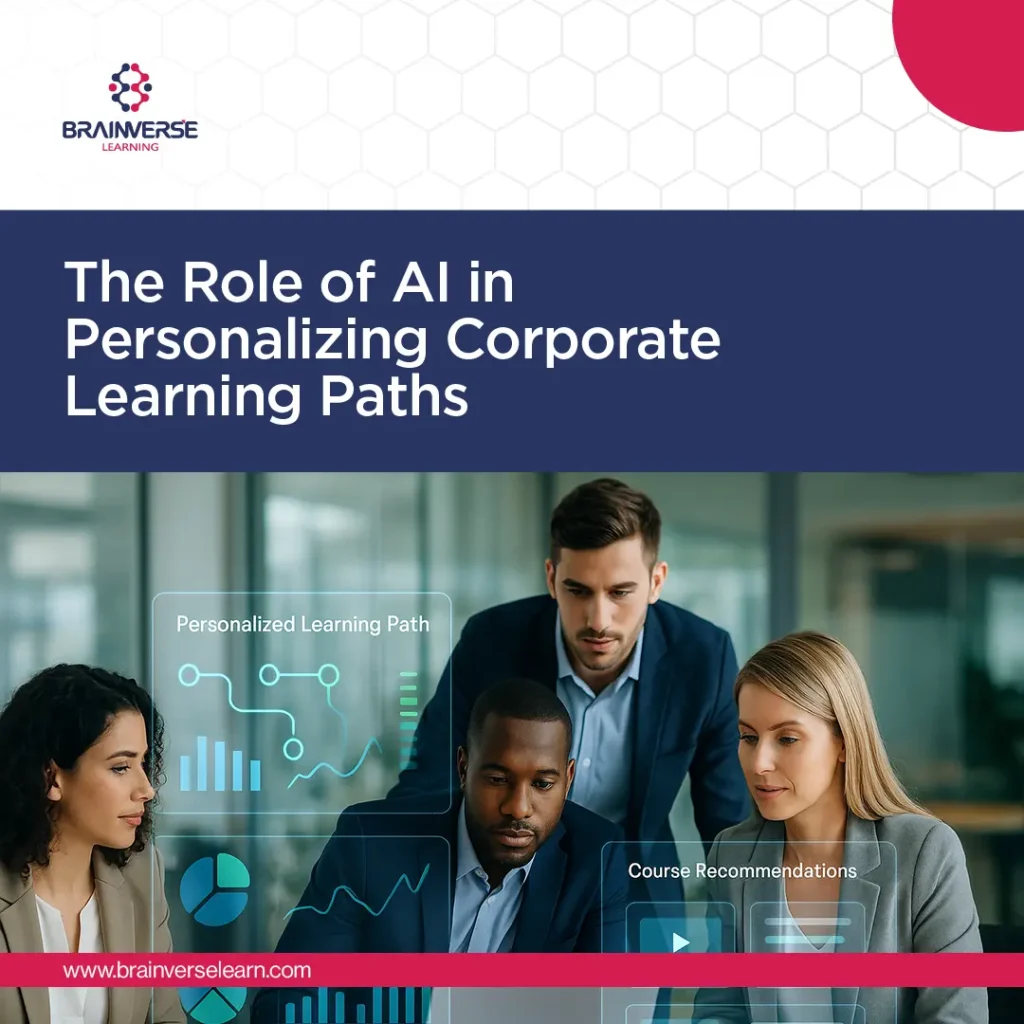
Revolutionizing Workforce Development in the Age of Intelligence
Introduction
In today’s fast-changing workplace, generic training programs no longer meet the mark. Employees face constant skill disruption as emerging technologies and shifting business needs redefine roles. According to the World Economic Forum’s Future of Jobs Report (2023), nearly 44% of workers’ skills will be disrupted by 2025.
To stay competitive, organizations must embrace personalized, adaptive learning paths and Artificial Intelligence (AI) is the key to making that transformation scalable and effective.
Why Personalization Matters
Personalized learning is now a strategic necessity. Traditional training assumes uniformity in how people learn, but every employee has unique strengths, gaps, and goals.
- Retention: 94% of employees would stay longer at a company that invests in their development (LinkedIn Workplace Learning Report).
- Upskilling: As automation reshapes industries, employees expect timely, relevant training aligned with career aspirations.
- ROI: Personalized learning ensures training investments target real skill gaps, improving outcomes.
What Are Personalized Learning Paths?
These are tailored training journeys based on:
- Job roles and responsibilities
- Skill gaps and performance data
- Learning preferences and pace
- Career aspirations
Unlike static modules, personalized paths evolve with the learner, driving continuous growth and engagement.
How AI Powers Personalization
AI transforms learning from static to dynamic. Key applications include:
- Data-Driven Insights: AI analyzes learner behavior and performance to build custom pathways.
- Adaptive Systems: Content adjusts in real time offering support to those who need it and challenges to high performers.
- Recommendation Engines: Like Netflix, AI suggests relevant modules based on learner profiles.
- NLP Tools: Chatbots and virtual assistants guide learners and answer questions.
- Predictive Models: AI forecasts future skill needs based on trends.
- Automation: AI streamlines assessments, tracking, and reporting for L&D teams.
McKinsey reports that AI-driven personalization can boost engagement by 30% and retention by 20%.
Benefits of AI-Powered Learning
AI transforms learning from static to dynamic. Key applications include:
Benefit | Benefit |
Engagement | Relevant content motivates learners |
ROI | Measurable training outcomes |
Scalability | Personalized learning at scale |
Upskilling | Future-proofs the workforce |
Analytics | Data to refine L&D strategies |
Efficiency | 40% reduction in training time (Fortune 500 case study) |
Real-World Applications
- Tech: Onboarding tailored for developers vs. product managers
- Healthcare: Role-specific compliance training
- Finance: Adaptive modules for risk and regulation
- Customer Service: AI simulations to build empathy and soft skills
Platforms like LinkedIn Learning, Docebo, and Coursera for Business are already leveraging AI to deliver smarter learning.
Challenges & Considerations
AI adoption must be thoughtful:
- Data Privacy: Ethical handling of learner data
- Bias: Oversight to prevent algorithmic bias
- Integration: Compatibility with LMS and HR systems
- Human-AI Balance: AI should enhance—not replace—L&D expertise
At Brainverse Learning, we champion responsible AI use, blending tech with human-centered design.
Looking Ahead
AI will soon enable:
- Micro-credentials aligned with industry needs
- Career pathing based on learning data
- Immersive VR/AR simulations
- A market projected to exceed $80 billion by 2030 (HolonIQ)
Conclusion
AI isn’t replacing trainers it’s empowering them. Personalized learning paths powered by AI build agile, engaged, and future-ready teams.
At Brainverse Learning, we design custom eLearning solutions that combine AI-driven personalization with expert instructional design. Let’s future-proof your workforce—together.


